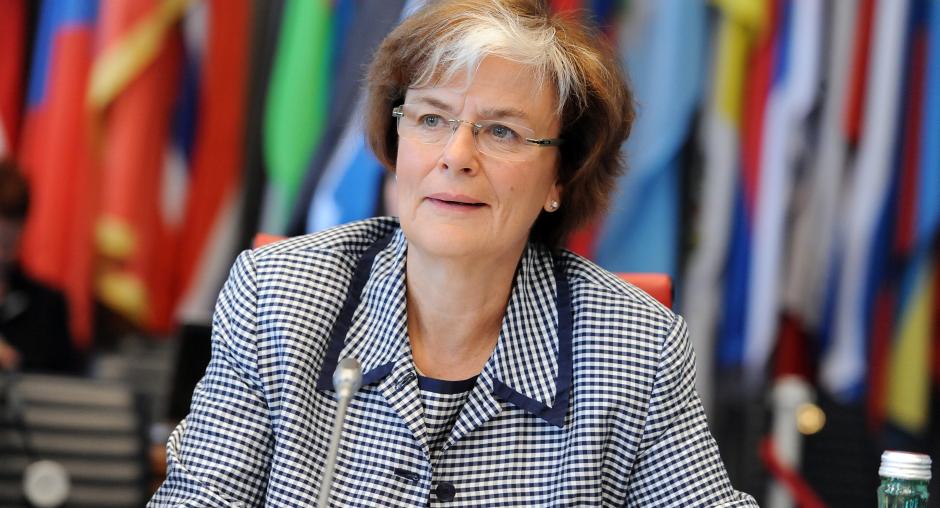Ukraine in focus in OSCE High Commissioner on National Minorities’ second statement to Permanent Council

In her second statement to the Permanent Council on 10 July 2014, OSCE High Commissioner on National Minorities Astrid Thors focused on aspects of the crisis in Ukraine related to her mandate.
“It is undisputable that long‑standing disagreements about the respective roles of the Ukrainian and Russian languages and different interpretations of history in Ukraine have aggravated this crisis. […] Language issues in particular have been used to gain political advantage without considering the risk to national unity,” she said. She added that such issues are exploited by radical forces inside and outside the country, which has contributed to the escalation of tensions. She reiterated her call for “a balanced approach to language policies, not just in Ukraine, but in all participating States.”
The High Commissioner said that she remains deeply concerned about the precarious position of both the Crimean Tatar and the Ukrainian‑speaking communities on the Crimean peninsula. “Members of groups that openly supported Ukraine’s territorial integrity face stark choices, individually and collectively, on whether or not to adjust to the political changes,” she said. “Those who do not are at risk of reprisals and face exclusion from political and socio-economic life, which could increase tensions on the Crimean peninsula.”
Thors took the opportunity to remind OSCE participating States that any authority exercising effective control over a territory is obliged to protect the safety, security and human rights of all those residing on that territory, including persons belonging to national minorities.
In her address, the High Commissioner also highlighted examples of good initiatives to improve integration and reduce tensions in participating States. She referred to the Bujanovac Department of Economics, which has become a symbol of interaction and integration between all communities in southern Serbia since its establishment in 2011.
She also welcomed the commitment of the government of Moldova to develop an integration strategy that aims to bridge some of these divisions, in accordance with The Ljubljana Guidelines on Integration of Diverse Societies.
The High Commissioner addresses the Permanent Council regularly providing an update on her office’s activities.
